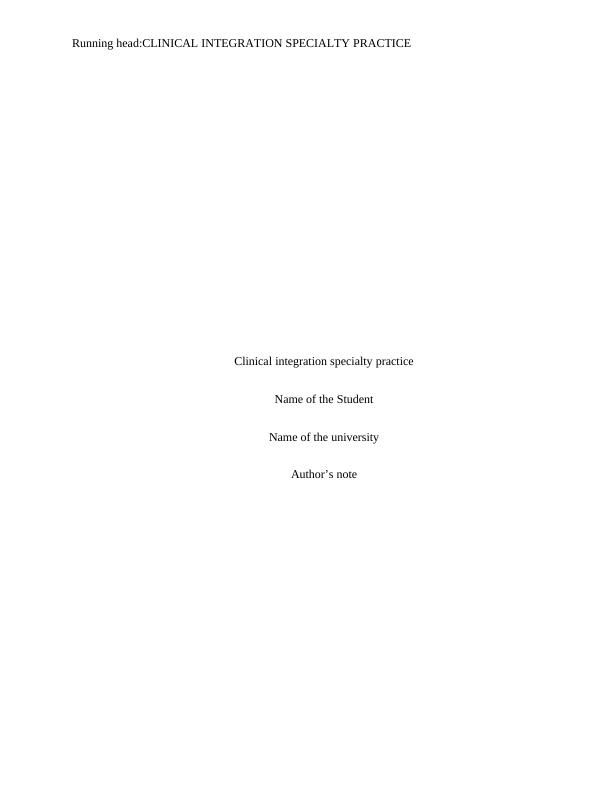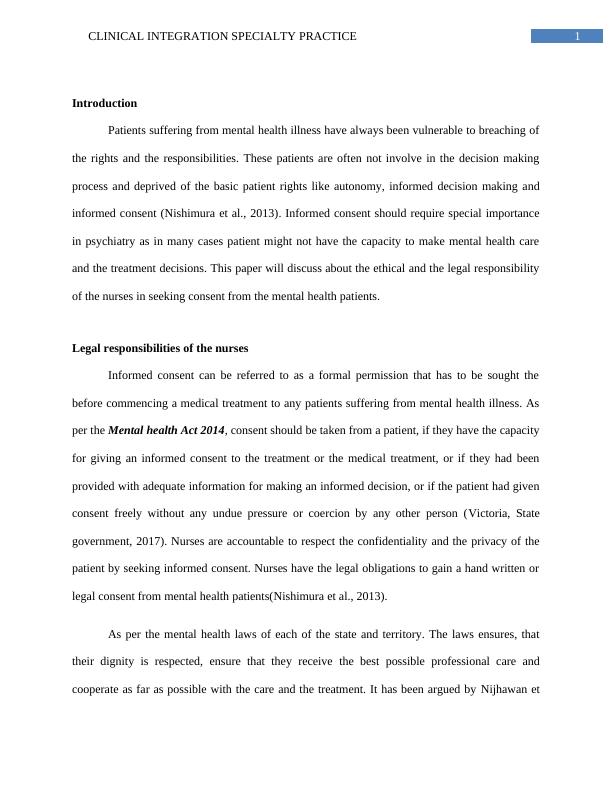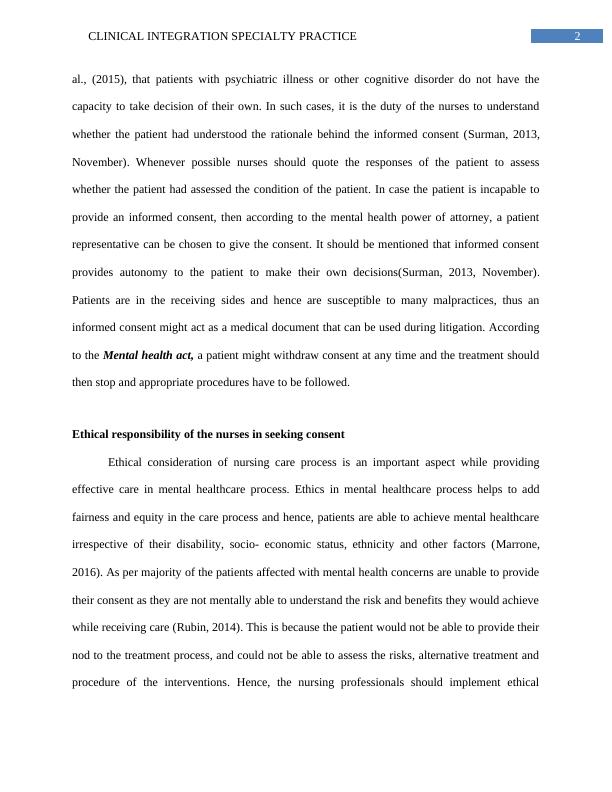Legal and Ethical Responsibilities of Nurses in Seeking Consent from Mental Health Patients
Write a critical analysis of 1000 words on an issue of safety or of legal responsibility that you explored in some depth, specifically related to the mental health specialty area.
7 Pages1269 Words294 Views
Added on 2023-04-11
About This Document
This article discusses the legal and ethical responsibilities of nurses in seeking consent from mental health patients. It explores the importance of informed consent, the legal obligations of nurses, and the ethical considerations in obtaining consent.
Legal and Ethical Responsibilities of Nurses in Seeking Consent from Mental Health Patients
Write a critical analysis of 1000 words on an issue of safety or of legal responsibility that you explored in some depth, specifically related to the mental health specialty area.
Added on 2023-04-11
ShareRelated Documents
End of preview
Want to access all the pages? Upload your documents or become a member.
Critique of the Article: Nursing Assignment
|7
|1668
|38
Partnering with Patients in Their Own Care: Sharing Decision and Planning Care
|8
|1964
|247
Ethical Dilemma Faced by a Nursing Student in Providing Care to a Mentally Ill Patient
|8
|1919
|213
Legal and Ethical Issues in Healthcare: A Case Study in Nursing
|7
|2028
|421
Legal and Ethical Responsibilities in Nursing Practice
|14
|3904
|208
Nurses can Empower Patients to Make Informed Decisions
|8
|2218
|340



